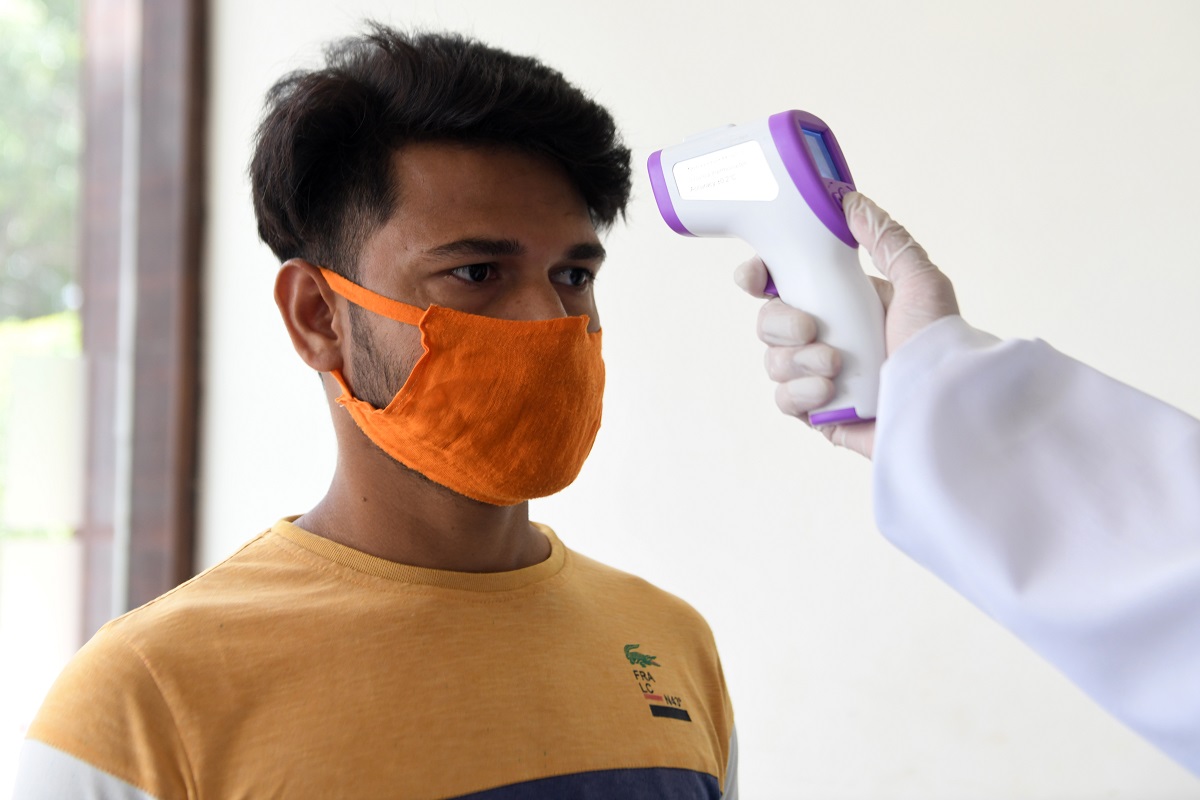The National Institute of Virology (NIV) at Pune has successfully developed the first indigenous antibody detection kit for COVID-19 that will play a critical role in surveillance for coronavirus infection, Union Health Minister Harsh Vardhan said on Sunday. The Indian Council of Medical Research (ICMR)-National Institute of Virology (NIV) at Pune has developed and validated the indigenous IgG ELISA test “COVID KAVACH ELISA” for antibody detection for COVID-19, an official statement said.
“The robust indigenous IgG ELISA test for antibody detection developed by ICMR-NIV, Pune will play a critical role in surveillance of proportion of population exposed to SARS-CoV-2 Coronavirus infection,” Vardhan was quoted as in the statement.
Advertisement
The test kit has the advantage of testing 90 samples together in a single run of 2.5 hours, so that healthcare professionals can proceed quickly with necessary next steps, Vardhan said in a series of tweets.
This kit was validated at two sites in Mumbai and has high sensitivity and accuracy, Vardhan said.
The ELISA-based testing is easily possible even at district level, he said.
Developed in a month’s time, the testing kit would help to study the presence of anti-SARS-CoV-2 IgG antibodies in the Indian population. It is cost-effective, sensitive, rapid, and a large number of samples can be tested at any level of clinical setting, public health centers and hospitals.
After the development at the ICMR-NIV, Pune, the ELISA test kits have been transferred for mass production to Zydus Cadila.
The COVID-19 pandemic has infected a total of 4,103,241 people worldwide and claimed 282,728 lives according to Johns Hopkins University.
Most countries in the world are struggling to contain the pandemic using possible interventions. There is an augmented demand of various types of diagnostic tests by countries all across the globe.
Most of the diagnostic material for COVID-19 is imported into India from other countries. Therefore, Indian scientists are tirelessly engaged in developing indigenous diagnostics for SARS-CoV-2, the causative agent of COVID-19.
The ICMR-National Institute of Virology (NIV), Pune, is the top laboratory of the country with state-of-art infrastructure and expertise for research in virology.
The NIV’s competent scientific team successfully isolated the SARS-CoV-2 virus from laboratory confirmed patients in India. This in turn has paved the way for development of indigenous diagnostics for SARS-CoV-2.
While real time RT-PCR is the frontline test for clinical diagnosis of SARS-CoV-2, robust antibody tests are critical for surveillance to understand the proportion of population exposed to infection.
There are also minimal bio-safety and bio-security requirements for the test as compared to the real-time RT-PCR test.
The test also has an advantage of having much higher sensitivity and specificity as compared to the several rapid test kits which have recently flooded the Indian market.
The ICMR recently cancelled orders for about half a million COVID-19 rapid antibody test kits from China after they were found to be giving out inaccurate results. The testing technique is used to detect antibodies in the blood of people who may have had coronavirus infection.











